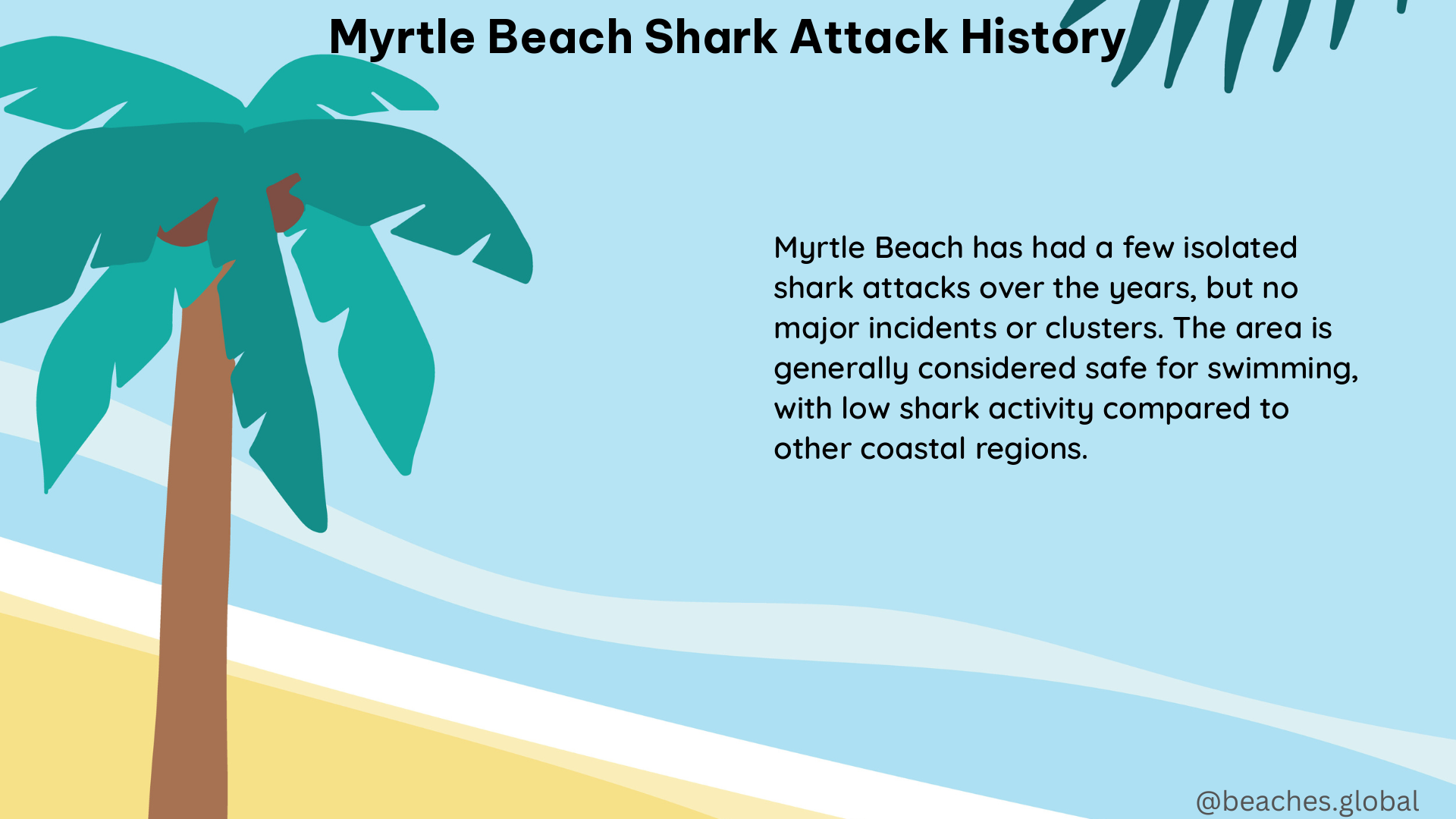Myrtle Beach, a popular tourist destination on the South Carolina coast, has a long and fascinating history when it comes to shark attacks. Over the past century, the area has witnessed around 50 documented shark attacks, with no fatalities recorded. This blog post delves into the details of Myrtle Beach’s shark attack history, providing insights into the species involved, the circumstances surrounding these incidents, and the measures taken to ensure beachgoers’ safety.
The Shark Attack Landscape in Myrtle Beach
Since 1837, South Carolina has recorded a total of 101 shark attacks, with the majority occurring in the state. Myrtle Beach, a popular tourist destination, has been the site of approximately 50 of these incidents over the past century. While no fatal attacks have been reported in Myrtle Beach, the area has witnessed several notable incidents that have raised awareness and prompted safety measures.
Recent Shark Attacks in Myrtle Beach

The most recent shark attacks in Myrtle Beach occurred in August 2022, when two swimmers were attacked by sharks in a single day. One of the swimmers sustained a “bad bite” to the forearm, while the other was unharmed. The species involved in these attacks are not yet known, but the incident serves as a reminder of the potential risks associated with swimming in the waters off Myrtle Beach.
Shark Species Detected in South Carolina Waters
Acoustic receiver data has detected 12 species of sharks in South Carolina’s waters, including great whites, sand tiger sharks, bull sharks, tiger sharks, lemon sharks, blacktip sharks, and hammerheads. Tiger sharks have been particularly prevalent, making up 45 percent of the large coastal shark species transmitter data.
Great White Sharks Near Myrtle Beach
In addition to the more common shark species, great white sharks have also been detected off the coast of South Carolina in recent weeks. Breton, a 13-foot great white, was pinged approximately 60 miles from Myrtle Beach on August 2. Great white sharks follow seasonal migration patterns, swimming from Canada and New England at the height of summer and down to Florida in the winter months.
Reducing the Risk of Shark Attacks
To minimize the already low odds of being bitten by a shark, the Florida Museum advises beachgoers to follow several safety precautions. These include swimming with a buddy close to shore, avoiding swimming at dawn or dusk, and steering clear of areas where people are fishing or if they have a bleeding open wound, as sharks have a powerful sense of smell. If approached by a shark, the museum recommends hitting the shark on its nose repeatedly and scratching its eyes and gill openings with your nails, as these are sensitive areas.
Conclusion
Myrtle Beach’s shark attack history is a fascinating and complex topic, with around 50 documented incidents over the past century. While no fatal attacks have occurred, the recent incidents in 2022 serve as a reminder of the potential risks associated with swimming in the waters off the South Carolina coast. By understanding the species of sharks present in the area, the seasonal migration patterns of great whites, and the recommended safety precautions, beachgoers can enjoy the beauty of Myrtle Beach while minimizing the already low odds of a shark encounter.
References:
– https://en.wikipedia.org/wiki/List_of_fatal_shark_attacks_in_the_United_States
– https://www.myrtlebeach.com/sharks/
– https://www.wltx.com/article/news/history-of-shark-bites-in-south-carolina/101-381b4649-b349-4841-a6d8-958201e807d0
– https://www.newsweek.com/shark-attack-two-people-same-day-south-carolina-myrtle-beach-1734734
– https://www.newsweek.com/south-carolina-myrtle-beach-shark-attack-bite-victim-grandson-1736389
